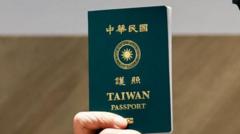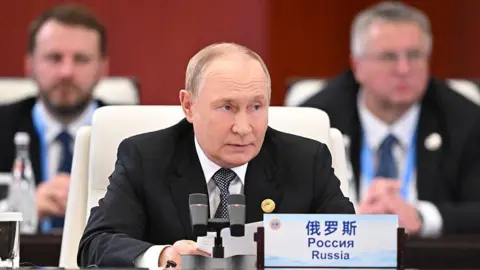Taiwan has condemned a recent travel ban implemented by Somalia, prohibiting holders of Taiwanese passports from entering or transiting through the East African nation. The ban was announced by Somalia's aviation authorities and took effect on Wednesday, according to Taiwan's foreign ministry. Despite Taiwan's protests, Somalia has not yet responded to the decision, which coincides with Taiwan's strengthening relationship with Somaliland, an autonomous region that declared independence from Somalia 34 years ago but remains largely unrecognized on the international stage.
Taiwan's foreign ministry firmly objected to Somalia's action, stating that it was influenced by China and impairs Taiwanese nationals' travel freedom and safety. The ministry has called for the Somali government to retract the ban immediately. It characterized Somalia's interpretation of the UN Resolution 2758 as erroneous, stressing that the resolution should not be tied to the "one China" doctrine. Due to the risks involved, Taiwanese media outlets have warned citizens against traveling to Somalia or Somaliland until further notice.
The Chinese government welcomed Somalia's ban, labeling it a legitimate response that aligns with the one-China principle. Diplomatic relations between China and Taiwan remain strained, as China considers Taiwan, which operates independently with its own constitution and elections, as part of its territory. Taiwan's diplomatic efforts have resulted in recognition from only a few countries.
Somaliland's unilateral independence from Somalia occurred in 1991, following the collapse of the Somali dictatorship led by General Mohamed Siad Barre. While Somaliland holds regular elections, many parts of Somalia are controlled by the militant group al-Shabab, which is linked to al-Qaeda. Somalia disputes Somaliland's autonomy and has denounced Ethiopia for engaging with Somaliland's government regarding port leasing agreements.
As tensions between Taiwan, Somalia, and China persist, observers continue to monitor how these geopolitical dynamics will evolve, particularly related to Taiwan's global standing and relationships in the region.
Taiwan's foreign ministry firmly objected to Somalia's action, stating that it was influenced by China and impairs Taiwanese nationals' travel freedom and safety. The ministry has called for the Somali government to retract the ban immediately. It characterized Somalia's interpretation of the UN Resolution 2758 as erroneous, stressing that the resolution should not be tied to the "one China" doctrine. Due to the risks involved, Taiwanese media outlets have warned citizens against traveling to Somalia or Somaliland until further notice.
The Chinese government welcomed Somalia's ban, labeling it a legitimate response that aligns with the one-China principle. Diplomatic relations between China and Taiwan remain strained, as China considers Taiwan, which operates independently with its own constitution and elections, as part of its territory. Taiwan's diplomatic efforts have resulted in recognition from only a few countries.
Somaliland's unilateral independence from Somalia occurred in 1991, following the collapse of the Somali dictatorship led by General Mohamed Siad Barre. While Somaliland holds regular elections, many parts of Somalia are controlled by the militant group al-Shabab, which is linked to al-Qaeda. Somalia disputes Somaliland's autonomy and has denounced Ethiopia for engaging with Somaliland's government regarding port leasing agreements.
As tensions between Taiwan, Somalia, and China persist, observers continue to monitor how these geopolitical dynamics will evolve, particularly related to Taiwan's global standing and relationships in the region.





















